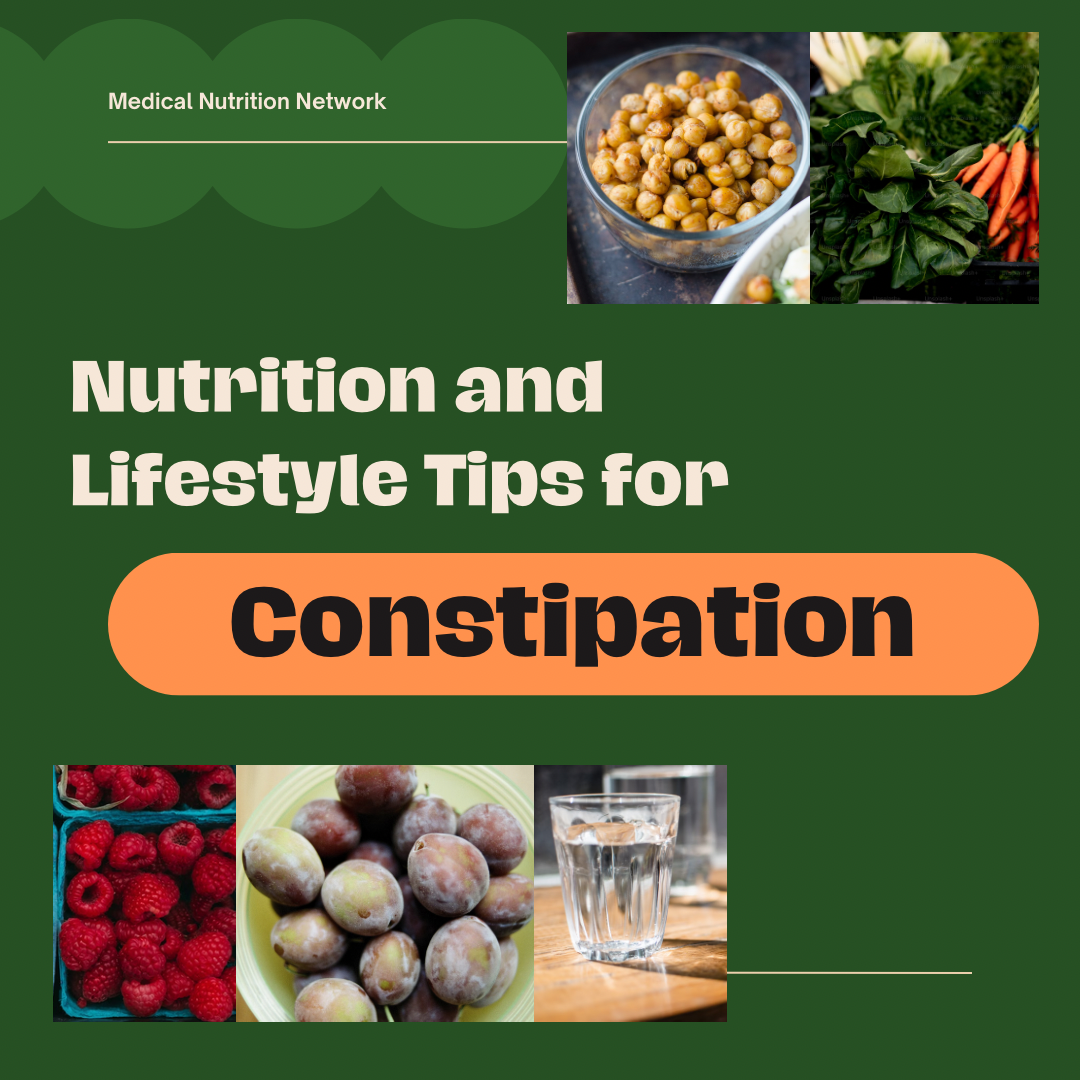Nutrition and Lifestyle Tips for Constipation
Eat plenty of fiber. Fiber helps increase bowel movement and intestine stimulation. For normal healthy adults, it is recommended to eat 25 - 35 grams of fiber daily, from foods such as fruits, vegetables, whole grains, legumes, nuts, and seeds. For the older adult population age 50 and older, 15-25 grams of fiber is recommended. Limit intake of processed and low-fiber food.
Add prunes and beans to your diet. Prunes have soluble fiber called pectin, that increase stool frequency and improve stool consistency. Drinking prune juice will also help constipation issues. Beans are a great source of fiber, that both softens stool and increases bowel movement. When buying canned beans, drain and wash with water to limit sodium intake. Soak non-canned beans overnight, as this can also shorten the cooking time. Beans also may help suppress inflammatory conditions, and reduce one's risk of cancer.
Have a consistent morning routine. Experts say that the best time for bowel movement is in the morning, after a glass of water or breakfast. You can train your body to use the bathroom in the morning, by sitting on the toilet for five minutes after drinking hot water with lemon or morning coffee and eating breakfast.
Exercise moderately on most days of the week, and stay active throughout the day. Do at least 30 minutes of moderate-intensity exercise most days of the week. Moderate exercise includes brisk walking, hiking, swimming, and playing tennis. Small activities in the day may be a 2 to 5 minute walk after lunch, which also aids in blood sugar levels.
Stay hydrated. Drinking enough water throughout the day will help in reducing constipation, as it will allow for soft and easy-to-pass stools.
Manage and limit stress. Stress and anxiety can damage bowel habits and cause diarrhea, which leads to constipation. Make your bathroom a quiet and peaceful environment by adding soothing paintings or other decorations to the walls. Avoid rushing or straining during bowel movement.
Talk to your healthcare provider if there are any changes to or persistent issues with bowel movement. Some factors that may cause a change in bowel movement are mental health medications, hormonal changes due to pregnancy, and health conditions such as diabetes and Crohn's disease. When starting a new medication, contact your doctor if there are changes to your bowel movement.
Our Registered Dietitian Nutritionists (RDNs) can work with you to help relieve constipation, promote regularity, improve gut health, and meet your individual needs.
Works Cited:
Elizabeth Shaw, M.S. “The #1 Underrated Food to Help You Poop, According to Dietitians.” EatingWell, EatingWell, 15 May 2024, www.eatingwell.com/best-underrated-food-to-poop
Isabel Vasquez, RD. “The Best Late-Night Drink to Help You Poop in the Morning, According to a Dietitian.” EatingWell, EatingWell, 23 May 2024, www.eatingwell.com/the-best-late-night-drink-to-help-you-poop
Walsh, Karla. “The Best Time of Day to Poop, According to Gastroenterologists.” EatingWell, EatingWell, 5 May 2024, www.eatingwell.com/the-best-time-of-the-day-to-poop
